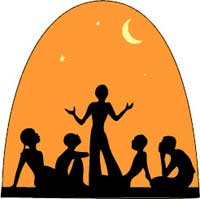A few days ago I had the opportunity to go to a conference for work all about providing competent and effective care for the LGBTQ community. It was really rad; I wanted to go last year and it just didn’t happen. But this year my work paid for me to go, so boo-ya!
My favorite professor from my MPH program happened to be presenting one of the workshops on representing trans* folks in a just and fair way in research and clinical practice (meaning, asking appropriate questions in surveys and on intake forms to effectively and justly represent the trans* community). I knew that I was going to end up talking to her about my the stripping/school debacle, and I especially knew it when she started about sex workers during her workshop. In fact, she referred to “whores” during her presentation, and then I really knew I was going to have an honest conversation with her (I trusted her to be using the word whore appropriately). Another attendee raised his hand:
“I noticed you used the word ‘whore.’ I’m used to saying ‘sex worker.’ Is it okay to use the word ‘whore’?”
“Well I use it because that’s what a group of my friends who are/were whores used to refer to themselves and the labor they did.”
She made a good point about the word “whore” being another reclaimed word (much like queer and dyke), and that some workers may prefer it while others may prefer something else. In terms of being “of” the community versus not being part of the community and using the word, it seems really important to ask those you are referring to what their preference is. Words like whore and queer and dyke can sound nice or hurtful depending on the context- while they may be used affectionately among people within the community and even with those who know them well, they can still be used as insults and threats. Play it safe and ask before using words and labels that have a complex history.
I did end up talking to my professor, and she gave me more support and “Fuck those people,” “You’re too good for that bullshit,” and “Stay strong” conversation. It felt really affirming to have further support from an academic- especially as she is the first academic I have talked to since the ordeal in December.
The rest of my day was pretty good. Here are some highlights:
-Being in a conference all day with a bunch of queer people was awesome. While the conference was for providers of all orientations who work with the queer community, there were a ton of queer providers in the room. And I was overwhelmed by all of the hot queer women!
 -The lunch keynote was by a Native American man who works with the Two Spirit communities in Montana and also does HIV prevention and education on the reservations. It was really cool. I also learned that Running Eagle, for whom a water feature is named in Glacier National Park, was Two Spirit.
-The lunch keynote was by a Native American man who works with the Two Spirit communities in Montana and also does HIV prevention and education on the reservations. It was really cool. I also learned that Running Eagle, for whom a water feature is named in Glacier National Park, was Two Spirit.
-My second workshop was supposed to be on navigating sexual health conversations with LGBTQ youth. I was super excited for this one, and it wasn’t very good. We talked about microaggressions and multigenerational trauma and how those things prevent youth from accessing the sexual health care they need. Unfortunately we barely scratched the surface and it wasn’t as meaty as I was hoping.
-My last workshop was on trauma and addiction, and I loved it. I love the physiology of trauma and oppression. Did you know that your hippocampus, which regulates memory formation and storage and your flight/fight/freeze response, shrinks when it you are discriminated against or oppressed or traumatized? Chronically high cortisol (stress hormone) damages your hippocampus. So interesting! The presenter referred to it as “oppression illness.”  Luckily, you can repair past damage through psychotherapy, exercise, and certain medications and plants. There has also been a paradigm shift in treating addictions. The past approach was: “Addiction is something people do to feel good and be hedonistic. Just stop!” The current approach is: “Addiction is something people do to feel normal and like everyone else.”
Luckily, you can repair past damage through psychotherapy, exercise, and certain medications and plants. There has also been a paradigm shift in treating addictions. The past approach was: “Addiction is something people do to feel good and be hedonistic. Just stop!” The current approach is: “Addiction is something people do to feel normal and like everyone else.”
-The closing keynote was fairly horrid. The speaker was some public health bigwig who does work around tobacco prevention in the LGBTQ community, and ended up coming out as trans*. But the identity is not some excuse for being arrogant and making tasteless, offensive jokes. I was offended through the whole thing and left ten minutes early.
All in all, it was a good day. And I got paid to go, so it was even better! :)










 I shifted in my seat. No one has ever said that to me. Maybe, I thought. I’m pretty sure I know what I’m talking about. This new counselor doesn’t even know me.
I shifted in my seat. No one has ever said that to me. Maybe, I thought. I’m pretty sure I know what I’m talking about. This new counselor doesn’t even know me. -The lunch keynote was by a Native American man who works with the Two Spirit communities in Montana and also does HIV prevention and education on the reservations. It was really cool. I also learned that Running Eagle, for whom a water feature is named in Glacier National Park, was Two Spirit.
-The lunch keynote was by a Native American man who works with the Two Spirit communities in Montana and also does HIV prevention and education on the reservations. It was really cool. I also learned that Running Eagle, for whom a water feature is named in Glacier National Park, was Two Spirit. Luckily, you can repair past damage through psychotherapy, exercise, and certain medications and plants. There has also been a paradigm shift in treating addictions. The past approach was: “Addiction is something people do to feel good and be hedonistic. Just stop!” The current approach is: “Addiction is something people do to feel normal and like everyone else.”
Luckily, you can repair past damage through psychotherapy, exercise, and certain medications and plants. There has also been a paradigm shift in treating addictions. The past approach was: “Addiction is something people do to feel good and be hedonistic. Just stop!” The current approach is: “Addiction is something people do to feel normal and like everyone else.”